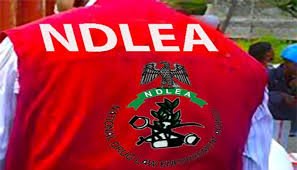Civil society organisations and community groups have staged a peaceful protest in Port Harcourt against the planned divestment of the international oil companies (IOCs) in the Niger Delta region.
Led by the Social Development Integrated Centre (Social Action), on Friday, February 23, the protesters marched from the UTC junction to the Government House, calling for an immediate halt to the divestment process until comprehensive reviews are conducted, ensuring oil companies’ accountability for environmental restoration and community compensation.
The protesters carried placards with various messages such as “No restoration, no remediation”, “Save the Niger Delta, restore our livelihoods”, and “Shell is going nowhere until they restore our original environment”.
They accused Shell Petroleum Development Company (SPDC) and other IOCs of leaving behind a legacy of environmental devastation and social injustice, after profiting from the region’s oil and gas resources for decades.
“We cannot allow a transnational corporation to profit at the expense of our people and then absolve itself of the monumental pollution it has caused,” said Dr Prince Edegbuo, the programme manager of Social Action Nigeria.
He said the divestment plan, which involves the sale of the IOCs’ assets to new operators, threatens to worsen the already dire situation of the Niger Delta communities, who have been suffering from the impacts of oil spills, gas flaring, and land degradation.
He cited the findings of the Bayelsa State Oil and Environment Commission, which confirmed that the waters, soil, and air of the region are saturated with toxins, “making the Niger Delta one of the most polluted places on earth.”
He also pointed out the lack of transparency and community participation in the divestment process, which he said fails to address the people’s demands for justice and compensation.
Sharing their personal stories, the protesters lamented how oil pollution has affected their health, livelihood, and culture.
Michael Gberale, a resident of Ogoniland, lamented the activities of Shell and IOCs in his area for 60 years, which he said have not only depleted the environment but also eroded the livelihoods of the people and resulted in the loss of many lives.
He said the implementation of the United Nations Environment Programme (UNEP) report on Ogoniland, which recommended a comprehensive cleanup and restoration of the area, has been slow and inadequate.
Avadi Chimankpa, a native of Rumuekpe community, one of the host oil communities in the state, highlighted the dire consequences of oil pollution in his community, emphasising the need for accountability and commitment to remediation before any divestment discussion.
He said his community has witnessed several oil spills, pipeline explosions, and conflicts, which have destroyed their farmlands, fishing grounds, and social cohesion.
Zinabari Mgba, a woman leader from Krokrotai, another host community, lamented the health impacts of oil pollution in her community, stressing that children are frequently sick, “husbands are unable to fulfil their responsibilities, and crops yield poorly.”
She said the community women have been at the forefront of the struggle for environmental justice, but their voices have been ignored and suppressed by the authorities and the oil companies.
The protesters also called for enhanced regulatory oversight, meaningful community engagement, and a thorough assessment of the new operators’ capabilities.
They vowed to continue their peaceful resistance until their demands were met.
























